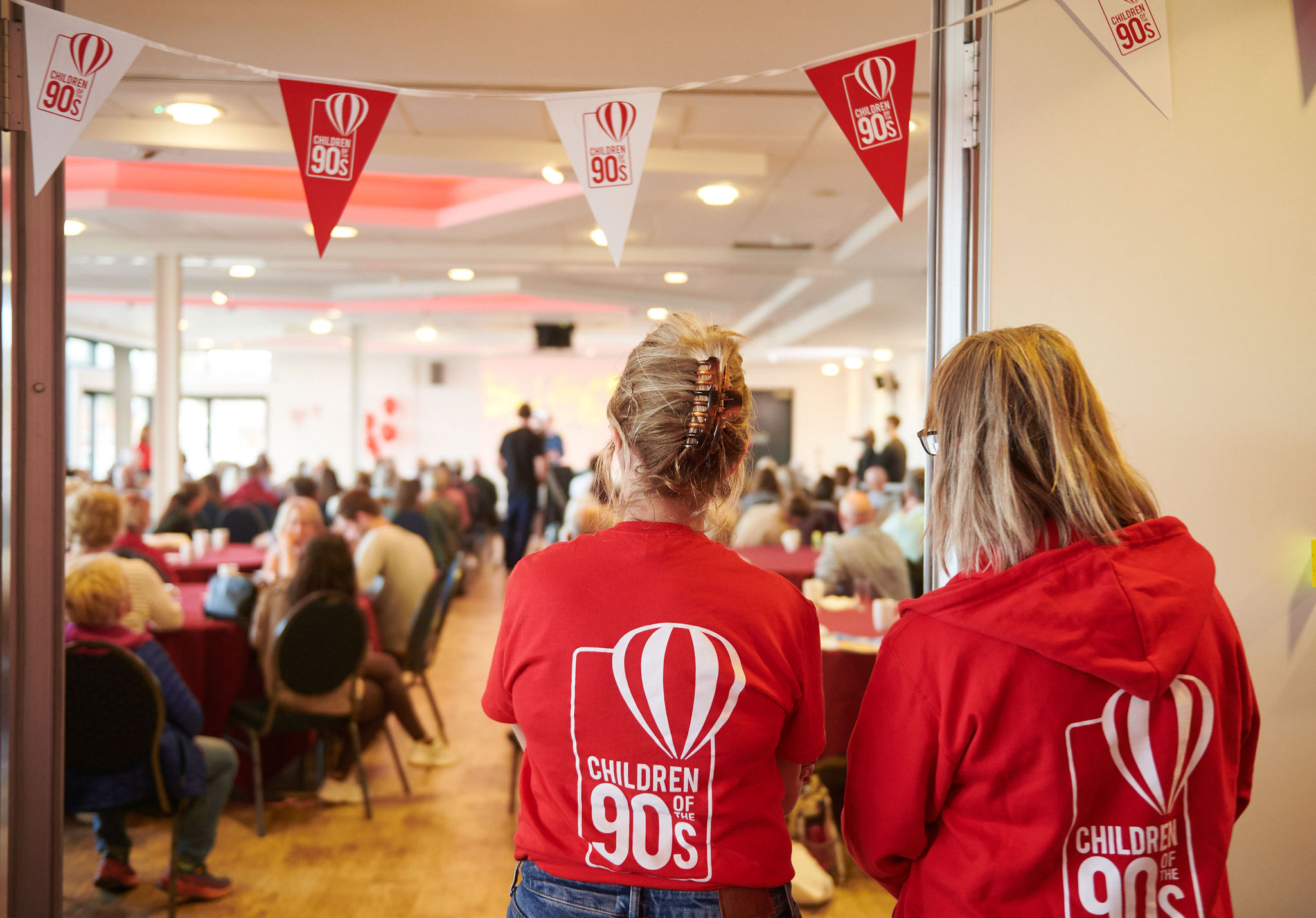From Children of the 90s: Hundreds of Children of the 90s participants from across Bristol and Weston-super-Mare visited the M Shed on Saturday to learn directly from the researchers behind the world renowned study.
The Discovery Day event, which marked the study reaching its third decade, welcomed all three generations to share study findings and hear from participants about their experiences of taking part and what it means to them.
Laura Smart from Bristol, an original Children of the 90s participant, attended the event with her mother Jane. Laura commented: “We had a wonderful time and it’s great to hear about some of the amazing research Children of the 90s data is supporting. We feel so incredibly proud to be part of the study and can’t wait to see what the future holds for it.”
Data from study, based within the University of Bristol, has been used by researchers around the world and its research findings have made a big impact.

Following the rise in cot death (SIDS) in the UK in the early ‘90s, Children of the 90s researched baby sleeping positions. The findings led to the government launching the ‘Back to Sleep’ campaign which, to date, has prevented an estimated 10,000+ deaths in the UK and 100,000+ worldwide.
More recently, Children of the 90s data fed directly into government policy for COVID-19, and helped researchers to understand the prevalence of the disease, including asymptomatic cases, immunity, its effects on physical and mental health, and its long-term impact.
The study, now in its 33rd year, is currently researching a variety of topics from childhood eating patterns to fatty liver disease and from mental health to the menopause.
Speaker Professor Anna Murray, University of Exeter, presented her findings on ‘Menopause and your genes’ and discussed how Children of the 90s data is helping her to learn more about the role of our genes in controlling the timing of menopause.
Professor Murray said: “Genetics offers us the possibility of being able to predict when and why different women might become infertile and when they could start their menopause. Our latest genetics study involves using the Children of the 90s data (along with other similar studies) to investigate whether different menopausal symptoms are related to each other or whether they have separate causes. It is hoped this might in future help find new potential drug targets to treat menopausal symptoms.”
Children of the 90s is currently looking for participants to come forward for their @30 clinic. It is the largest ever collection of health data and so far over 7,000 participants have attended for a 3-hour visit (including parents, children and partners).

Children of the 90s lead, Professor Nic Timpson said: “We would love our participants to book their @30 clinic appointment – it’s our biggest ever clinic, with all three generations involved and it must finish next year. Anyone eligible can come along, even if they’ve never taken part.
If you were born in Bristol or Weston between April 1991 and December 1992 simply text your name and date of birth to 07772 909090 or visit www.childrenofthe90s.ac.uk for eligibility details.
Each appointment really does make a difference.”
As Children of the 90s are no longer children but now adults, they represent a typically understudied group and scientists hope that by studying this age group they can help to unlock the causes of future ill health.
About Children of the 90s
Based at the University of Bristol, Children of the 90s, also known as the Avon Longitudinal Study of Parents and Children (ALSPAC), is a long-term health research project that enrolled more than 15,000 pregnant women in 1991 and 1992. It has been following the health and development of the parents, their children and now their grandchildren in detail ever since. It receives core funding from the Medical Research Council, the Wellcome Trust and the University of Bristol.
Find out more at www.childrenofthe90s.ac.uk


You must be logged in to post a comment.